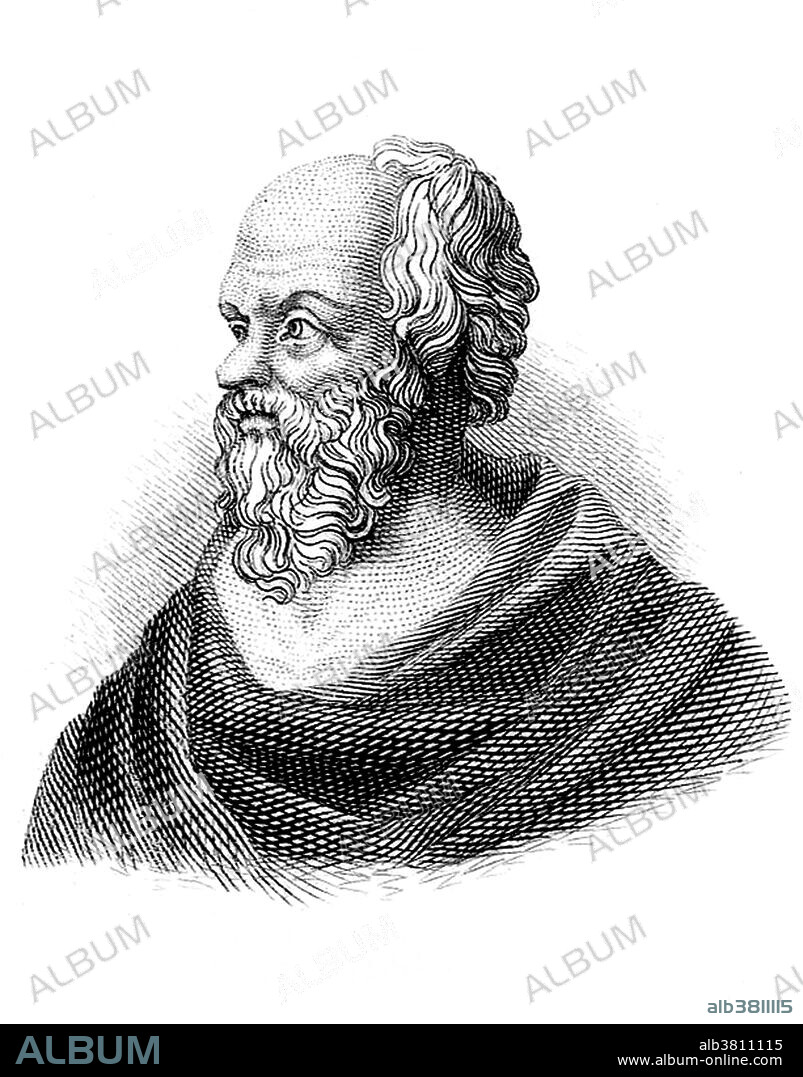alb3811115
Socrates, Ancient Greek Philosopher

|
Añadir a otro lightbox |
|
Añadir a otro lightbox |



¿Ya tienes cuenta? Iniciar sesión
¿No tienes cuenta? Regístrate
Compra esta imagen.
Selecciona el uso:

Título:
Socrates, Ancient Greek Philosopher
Descripción:
Ver traducción automática
Socrates (469-399 BC) was a classical Greek Athenian philosopher. Credited as one of the founders of Western philosophy, he is known chiefly through the accounts of later classical writers, especially the writings of his students Plato and Xenophon, and the plays of his contemporary Aristophanes. Socrates is renowned for his contribution to the field of ethics and the concept of Socratic method (a form of inquiry and debate between individuals with opposing viewpoints based on asking and answering questions to stimulate critical thinking and to illuminate ideas, dialectical). Socrates made important and lasting contributions to the fields of epistemology and logic. In 399 BC Socrates was tried on the basis of two notoriously ambiguous charges: corrupting the youth and impiety. He was accused of "failing to acknowledge the gods that the city acknowledges" and "introducing new deities." Socrates was declared guilty and sentenced to death by drinking a mixture containing poison hemlock. Engraving by J.W. Cook, 1825.
Crédito:
Album / NYPL/Science Source
Autorizaciones:
Tamaño imagen:
3292 x 4200 px | 39.6 MB
Tamaño impresión:
27.9 x 35.6 cm | 11.0 x 14.0 in (300 dpi)
Palabras clave:
ANCIENT GREEK • ANTIGUO • ANTIGÜEDAD • ARTE • ATENIENSE • BLANCO Y NEGRO • CONDENADOS A MUERTE • DIBUJO • ETICA • FAMOSA • FAMOSO • FAMOSOS • FIGURA • FILOSOFIA • FILOSOFO NATURALISTA • FILOSOFO • GENTE • GRABADO • GRIEGO ANTIGUO • GRIEGO • HISTORIA • HISTORICO • HOMBRE • HOMBRES • ILUSTRACION • ILUSTRACIONES • IMPORTANTE • LOGICA • MASCULINO • OBRA DE ARTE • ORADOR • PERSONA • PERSONALIDAD • PERSONALIDADES • PORTAVOZ • PORTRAIT • RETRATO DE HOMBRE • RETRATO • S. IV AC • S. V AC • S. V AC. • SIGLO IV A. C. • SIGLO IV AC • SIGLO IV AC. • SIGLO V A. C • SIGLO V A. C. • SIGLO V AC • SIGLO V AC.


 Pinterest
Pinterest Twitter
Twitter Facebook
Facebook Copiar enlace
Copiar enlace Email
Email
